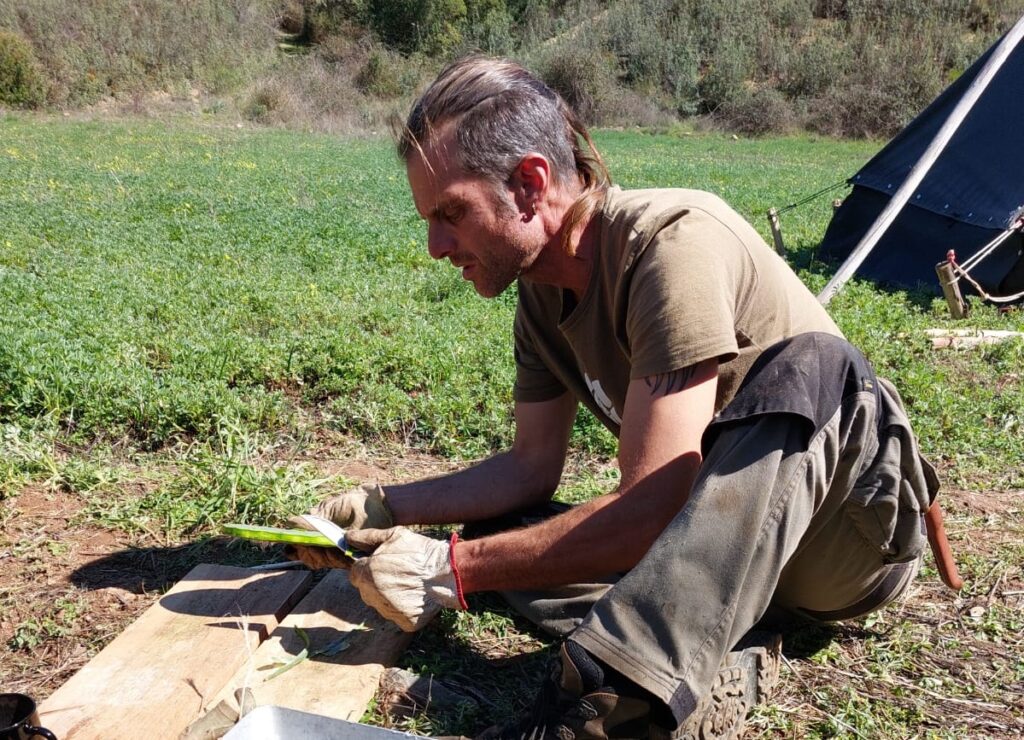
Survival boots are an essential part of your bug-out bag. They protect your feet from blisters and injuries while hiking or rucking through rough terrain or even in the event of a disaster when you need to move quickly over tough ground to get to a safe location.
How to choose Survival Boots
There are many aspects to consider when you choose the best survival boots. It is important that you consider the terrain you are going to be hiking, the climate and the conditions you will be in while you hike.
Boots must be comfortable and well-fitted. They must be made from durable materials, which can withstand the elements and wear and tear of long days on the field.
They should also be lightweight to ensure you do not feel heavy while hiking or rucking. They should not absorb water during a sudden storm or rain.

You have the option of survival boots made from leather or nylon, depending on your budget and needs. Some boots can be worn in cold weather thanks to their insulation.
These boots are perfect for bug out bags. They have many benefits, including a cushioned interior and moisture-wicking lining. These boots can be worn on any terrain, and the rubber sole will provide you with plenty of shock protection.
Garmont T8NFS 670 boots are a great choice for anyone looking for boots that will keep feet dry and warm in any terrain. These are military-grade boots that meet the performance standards of the US Army and US Air Force for Operational Camouflage Pattern (OCP) use and are a solid choice for anyone who needs a boot that is tough and reliable.
They also feature a high-quality, full-grain leather construction that can withstand the harsh environmentsloggers face every day.
A removable liner is also an important feature of survival boots. It is recommended to carry a removable liner in case you need to dry your boots out in the field.

Removable liners allow you to remove your boots while they are drying and then place it back on when the temperature drops. This is especially important in hot or extremely cold places.
Remember that your boots must be able withstand all the terrain that you will encounter and all the weather conditions in your Bug out Location. The boots you choose should last at most one year.
FAQ
How to stay calm in a survival situation?
Most situations will require patience and calmness. It's easy, especially in a survival situation where you are isolated from civilization, to panic. Keep calm and be patient, you will be able to handle whatever happens.
It is important to remember that it is impossible to change the outcome. You only have control of how you react. This will allow you to feel great about yourself, even if you don't achieve everything you want.
When you are in a survival situation, you must remain calm and collected. This means that you must be mentally and emotionally prepared.
Mental preparation includes having a clear goal in mind and setting realistic expectations for yourself.
Physical preparation means ensuring that you have enough water and food to last until help arrives.
You can now relax and enjoy the experience once you have done these two things.
How do I pick the right knife?
It can be hard to find the right knife. There are many brands that claim their knives to be the best.
Which one is the best? How do you choose?
First, think about the type of tasks you will be using your knife for.
Do you have the ability to cut wood or skin animals?
Is the knife meant for hunting or fishing? Is it intended for camping cooking, or kitchen cutting?
Is it going to be used to open bottles or cans of beer? Are you going to open packages or boxes?
Does your knife have to be strong enough?
Consider cleaning it after each use. Is it something that you will be doing often?
Does it have to maintain its edge well over the course of time?
What are your options in a survival situation
It's impossible to spend too much time thinking about what you should say next. Prepare for everything. Make sure you know how to react when confronted with an unexpected problem.
You must also be ready to improvise if you find yourself in a situation where you're not sure what to do.
You'll likely face problems such as:
-
Being trapped in a remote area
-
Getting lost
-
Having limited food supplies
-
Water running low
-
Facing hostile people
-
Facing wild animal
-
Finding shelter
-
Predators being fought
-
Setting fire to
-
Using tools
-
Building shelters
-
Hunting
-
* Fishing
What are the basics of survival camping?
The first thing you should do when you go on an adventure trip is to prepare yourself for any eventuality. Learn how to survive in extreme environments.
Also, you must be prepared for any kind of weather, including hot sun or cold wind. If you don't take these precautions, you might end up dying.
What are the essential skills required to survive in the wild?
If you live off the soil, you must learn how to build a fire. It's not just a matter of lighting a match; you must learn how to start a fire using friction and flint. Also, you need to be able to avoid being burned by the flames.
It is important to understand how to create shelter using natural materials such as leaves, grasses, and trees. To keep warm at night, you'll need to be able to use these materials in the best way. You will also need to understand how much water you are able to drink to stay alive.
Other Survival Skills
While these things can help you live longer, they won't be as important as learning how to light a flame. While you may be able to eat many different species of animals and plants, you won’t be able cook them if it isn’t possible to light a flame.
You'll also need to know how best and where to find food, including edible plants and animals. You may become sick or die if this is not known.
What is the most important item for survival?
Food is the most important thing that you must have to survive. Shelter from the elements is as important as food. If you don't eat, you won't live very long.
Statistics
- The Dyrt PRO gives 40% campground discounts across the country (thedyrt.com)
- We know you're not always going to be 100% prepared for the situations that befall you, but you can still try and do your best to mitigate the worst circumstances by preparing for a number of contingencies. (hiconsumption.com)
- so you can be 100 percent hands-free, and there's less chance you'll put your torch down and lose it. (nymag.com)
- The downside to this type of shelter is that it does not generally offer 360 degrees of protection and unless you are diligent in your build or have some kind of tarp or trash bags, it will likely not be very resistant to water. (hiconsumption.com)
External Links
How To
How to Dress a Wound
It takes a lot of time to learn how to dress a wound. Basic knowledge is required, including anatomy, physiology and medical instruments. You may inflict injuries on yourself if your experience is not sufficient. These steps will help you dress a wound.
-
Thoroughly clean the wound. Make sure the wound does not contain dirt and foreign objects. Wrap the gauze around the wound after cleaning it. After cleaning the wound, rinse your hands with water and then touch it.
-
Use pressure. Do not forget to place two fingers on the wound's edge. Gently but firmly press. This is a good way to stop bleeding.
-
Make sure to properly cover the wound. Sterile bandage material must be applied to the wound. There are several options available for sterile bandages: nonwoven material, surgical tape, adhesive strips and cotton. Continue applying pressure until your wound heals completely.
-
After treatment, keep an eye on the wound. Be on the lookout for signs such as swelling, fever, pain, pus, pus, or reddening of the wound. These signs can indicate that the injury has become infected. Get in touch with your doctor immediately.
-
You should change the bandage frequently. The bandage should be changed every day or whenever there are any signs of infection.
-
Use warm water and soap to clean the area. Follow the instructions on the package. Do not use alcohol. It may dry out the wound.
-
Do not scratch the wound. The wound will bleed again if it is scratched.
-
Be careful during bathing. You are more likely to get an infection if you take a bath.
-
You must take care of your wounds all the time. After surgery, your body's temperature will rise. High temperatures could lead to complications. Keep the wound clean and dry.
-
If necessary, seek medical assistance. If you feel uncomfortable call 911 or go directly to an emergency room.